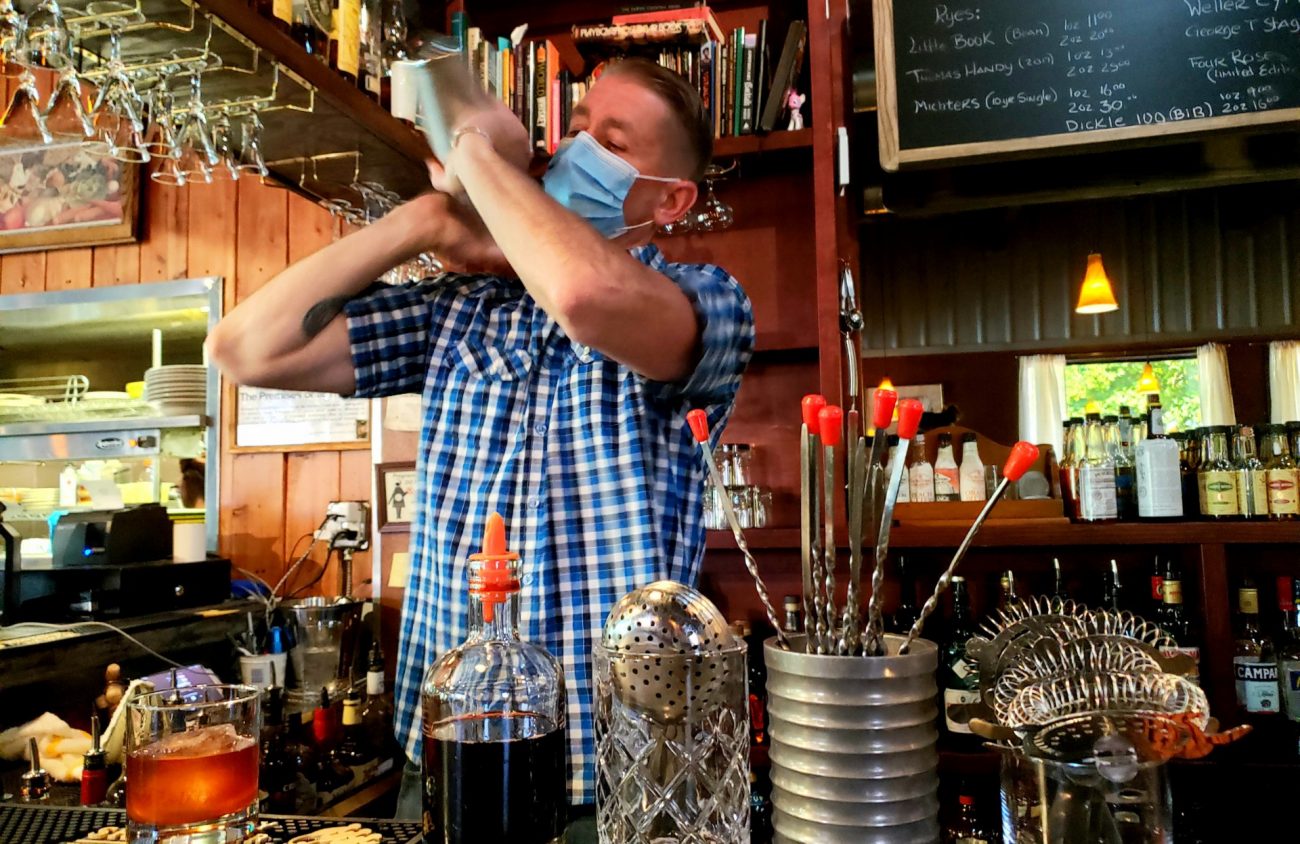By Jeffery Passerotti, Wendy Watson and Kiyallah Heatherstone
With the COVID-19 pandemic in full roar, we the small, independent restaurants, are facing an existential crisis.
Restaurants have always seemed a recession-proof business. Sure, the individual business could struggle and fail, but as a whole, restaurants thrived, grew and succeeded. People have to eat, and people like to drink, and people love to be social. Special occasions happen all the time; it is always someone’s birthday, or anniversary or graduation. The other end of the spectrum is filled with food trucks, small take out joints and the entire fast food sector. The industry keeps chugging on.
Everyone reading this is aware the last 30 years have given rise to the internet along with mass and social media. This allowed the world to share knowledge, ideas and traditions in new and unique ways — a proverbial melting pot.
It has brought this country a bounty of culinary choices and delights, from celebrity chefs and the Food Network™ to more personal awakening of a world full of exotic spices, heirloom vegetables, boutique wines and artisanal spirits. It helped to drive small, independent restaurants to the forefront of dining in America. Our cities and towns are stocked with amazing chefs and stupendous waiters. Local farmers markets are filled with regional pride and global awareness. This makes a more diverse and interesting food scene than ever before.
Sure, the large chains (owned by large conglomerates and backed by deep pockets) are pushing the same mass-produced food that is cost-driven, heavily advertised and lacking in love. These “restaurants” food businesses have always been focused on putting profit first, but even they are trying to keep up with the trends from the little guys. This has been a very good couple of decades to be a foodie.
We (the little guys) are much better at poaching that duck egg, stirring the Manhattan or remembering your cat’s name than we are at cash flow and P&L reports. We love the food, the drink and the community. If we understood money, we would be bankers. Our understanding of analyzing sales is usually along the lines of “more butts in seats = more money!”
Which brings us to the problem we are facing. We cannot put “more butts in seats.” We don’t even have as many seats as we did before.
Often smaller restaurants sell as much in an hour on the weekend as we do over an entire Tuesday. With social distancing, we have lost the busy Friday and Saturday nights. We have lost our bar seating, and our two-top tables. We have lost the ability to just add a seat to the end of a table, or to squeeze one more person in. A lot of us have lost 70 percent or more of our potential seats. There aren’t enough seats in a socially distanced dining room.
What we do have is time. We have the earlier and later hours of the night, and slower days of the week. We can seat more people on Tuesday or Wednesday or at 4:30 or at 9 pm than we do now. The dining culture evolved around the idea that you go out to eat around 6 or 7 pm on the weekend. Places that are packed on Friday at 6:45 are where to go. Busy means quality, and if a place is slow, it must be bad. We must change that idea for small restaurants to survive.
We want more people to make reservations so we can plan better. We want people to start dining earlier or later and on different days. We want couples to start a tradition of “date night” on Tuesday. We need people to start to feel that they can have a great time with great food on any given night and not just on the “busy” nights, because there aren’t any “busy” nights with social distancing.
The problems we face are not unique to us. We are literally “all in this together” (cue heartfelt music).
The social distancing required for us to beat this virus affects the corporate chain restaurants too, it is just that they have deeper pockets, better cost controls, and often an ability to operate at a loss. If we have a war of attrition with this virus, at the end of the day, only the large chains will be able to last. The industry will keep chugging on, just without us.
We can adapt to these changes so we can continue to serve our community and friends. We ask that you adapt and change your habits along with us.
Jeffery Passerotti, Wendy Watson and Kiyallah Heatherstone are co-owners of rye food & drink.
